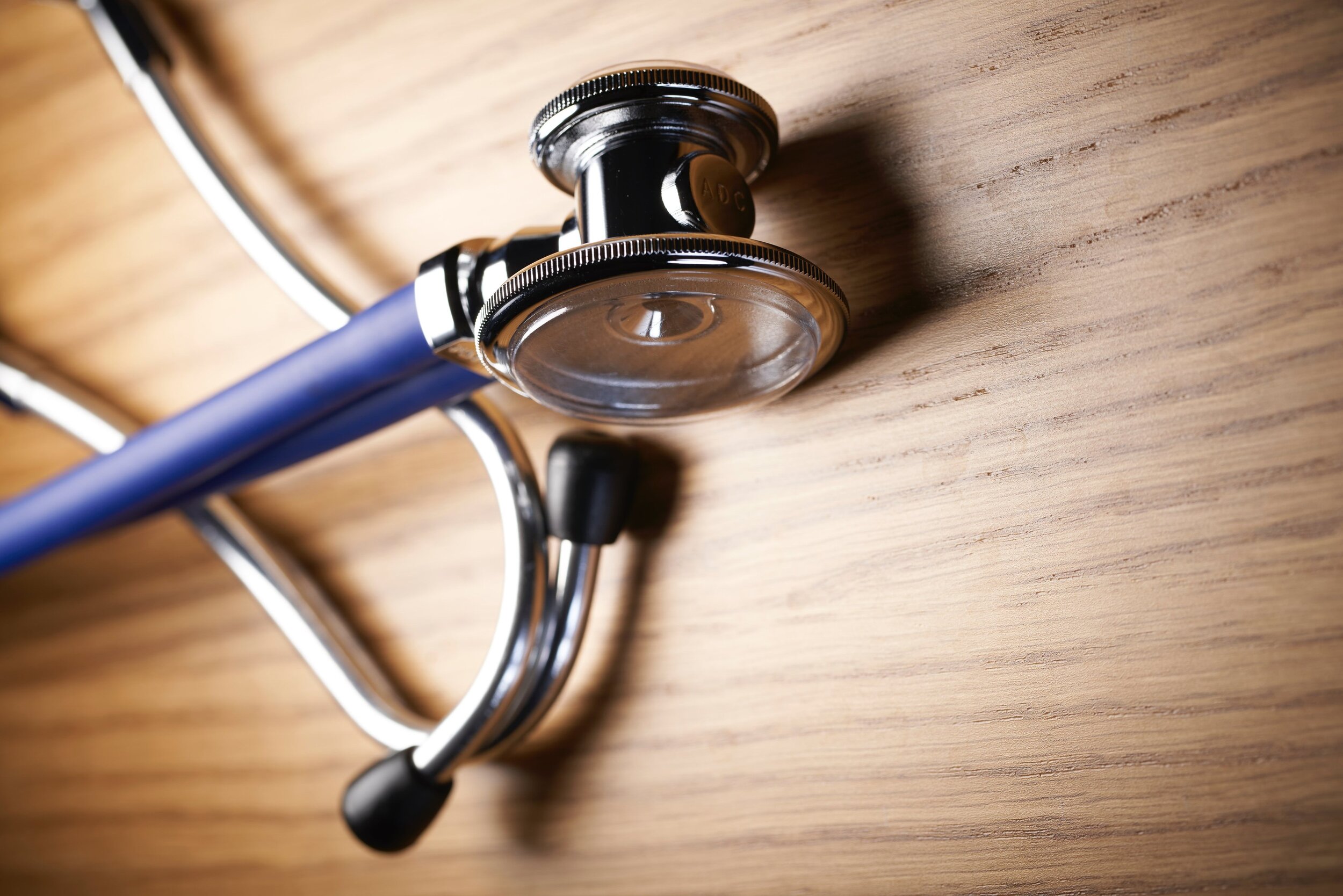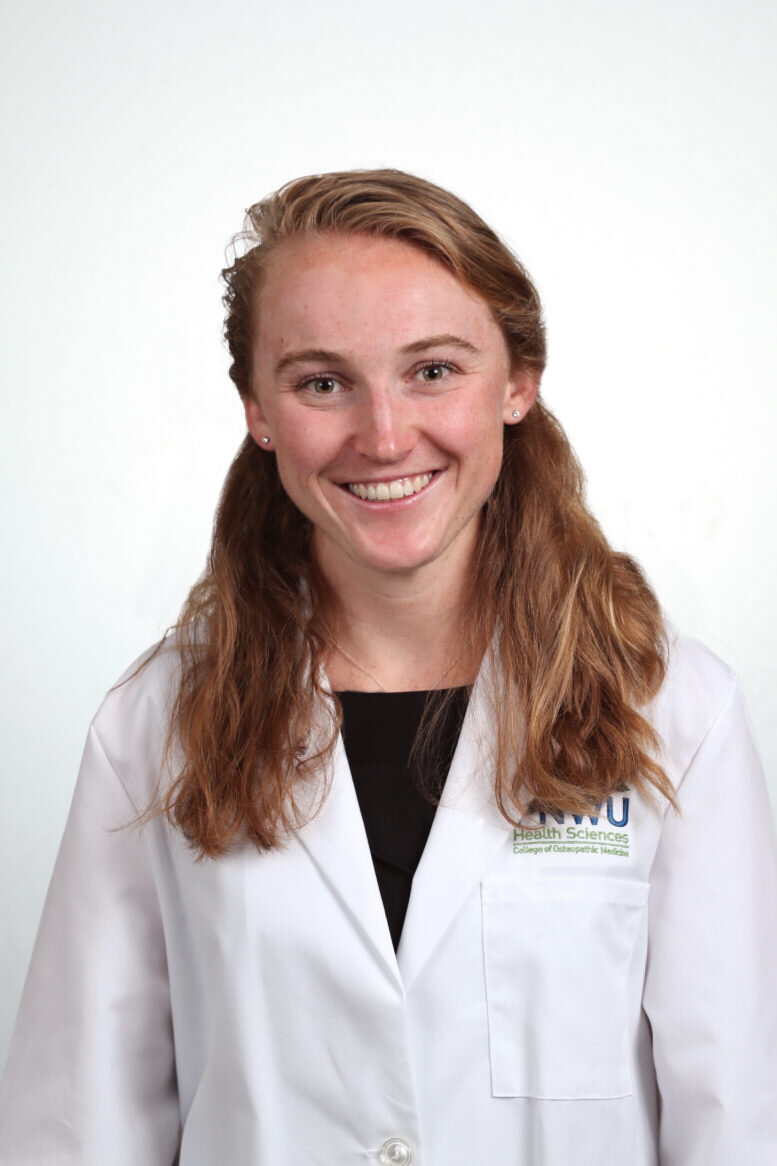Six Things Every Medical Student Needs in Their Backpack
After three years at PNWU, plenty of hard lessons have shaped the contents of the backpack Student Doctor Remy Arnot carries each day.
As a new group of health sciences students prepare to begin their mission-driven journeys alongside her at PNWU, Arnot offers a glimpse into her backpack, and explains the value of each item she has learned to carry along the way.
Protein Bars
Don’t learn this lesson the hard way (like I did).
Focus is essential for a medical student. Seemingly endless hours spent on top of your game? It’s taxing.
When I started medical school, my major energy output switched from multi-hour trail-runs to diligent puzzle solving and clinical responses. Still, the caloric demand is real! Factor in the constant surprises that seem to accompany a day in the life of a med student -- extra hours in clinic, tutoring that run’s over, or even sleeping in and missing breakfast – and it’s safe to say my protein bar stash has saved me many times.
If protein bars don’t work for you, figure out something that is shelf stable and packable. Always keep that on your person and you will thank me later.
4x6 Note Cards
Credit this tip to the one and only Dr. Mark Baldwin.
I keep a stash of 4x6” notecards in both my backpack and my white coat.
From writing down a coffee order for the surgical team to outlining my ROS for my report to my attending, the size of the card allows flexibility and permanence to organize my thoughts.
I’ll admit at first, I thought the cards were silly. After running out of a pack within my first few weeks of rotations, however, I once again learned the hard way…
My 4x6 cards help me keep my patient presentations short; they allow me to collect concise information for future note review, and even serve as little self reminders when left on my desk. They’re old-fashioned, sure, but they work beyond just self help: handing something to a patient with the advice you just gave them just seems to stick more than a phone reminder.
A Black Pen
It sounds simple, but having your own pen available is a small touch of professionalism and preparedness that rubs off.
Perhaps you need to sign something (we need to sign things ALL THE TIME), or you need to jot down a note: it’s always best to be prepared with a reliable black pen. In many ways, being prepared is being professional, and if you can capitalize on even a small step toward the vision of yourself…why not?
A Watch with Seconds
It doesn’t have to be anything fancy. A bargain-bin watch from the nearest superstore will work wonders.
As a physician in training, you’ll learn that they’re called “vital signs” for a reason: they are indispensable. Always be prepared to take vitals. Physical exam lab requires that you can take a heart rate and respiratory rate, and that will continue in the field throughout your career.
You need disposable, re-usable and bare minimum things to always keep on you. A watch that shows seconds is a perfect example of that.
When a preceptor signs a death certificate and asks you the time, you need to be able to give them the EXACT time, not hang on or, “Uh, let me check my phone.” And they usually want that NOW. This is same with respiratory rate or heart rate.
Your Student ID Badge
Who are you? Prove it.
Your student ID badge represents your status as a physician in training, your position in the medical community, and gives you physical access to different campuses. This is an important tool for everyday use.
Don’t be that guy who forgets their badge and can’t come to study group or is late to an exam. Signed: someone who’s lost their ID badge about a billion times. Plus, if you’re anything like me – Remy Arnot – you’ve found that many people can use a little visual name clarification during introductions.
During clinical years, everyone will ask who you are. Showing your badge as you introduce yourself provides clarification and a sense of security. You’re only in a rotation for a maximum of six weeks, and it can often take longer than that to truly learn someone’s name. It’s polite of you to have your name visible to anyone who calls you. And again, it displays a small level of professionalism that helps to color the whole picture complete.
Your Stethoscope
Ancient, and in many ways a symbol, your stethoscope is important and can tell you a lot.
This tool is now part of your uniform. Start carrying it with respect, but not arrogance. You will need it for every lab on campus (except anatomy lab, of course), and each day on rotations you will need to be prepared to listen for any murmurs etc. on a patient.
And no, you shouldn’t keep it in the box! Keep your stethoscope in a clean, dry part of your backpack. THROW THAT BOX AWAY!!
Remy Arnot
Osteopathic Medical Student - 3rd Year (OMS III)
Building the Next Generation of Academic Physicians (BNGAP) National Liaison
Pacific Northwest University of Health Sciences







